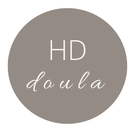|
During the first half of my pregnancy, under standard obstetric care, diet and supplementing were never discussed. I was nauseated, so I was told to take Zofran (dangers on this pharmaceutical will be discussed in a later post). I was getting a variation of migraines, lacking good sleep, out of breath, etc. and was told that there was nothing that could be done. These were "normal" symptoms of pregnancy after all. About halfway into my pregnancy, heaven led us to our precious midwife who changed the health, birthing, and future parenting path we were on. At our first appointment with her, we sat for a good chunk of time and walked through a food log that she had me keep. We talked about what foods I should be eating to help me both feel my best and keep my baby growing healthy, and what supplements would help me with the discomforts of pregnancy. Diet and supplementing made a huge difference in the last half of my pregnancy. I slept well, digestion worked optimally, I stayed healthy, and I felt strong. Beyond a healthy diet and prenatal vitamin, other nutritional needs will be person and symptom specific. You can simply listen to what your body is trying to tell you from the symptoms you experience and supplement appropriately, or you may choose to have your blood drawn during pregnancy. With a blood test you will be able to see certain vitamin and mineral levels and adjust accordingly. Either way, consult with your care provider regardless of how you choose to both eat and supplement, and work as a team to get you to your optimal health. In closing, if your provider does not discuss nutrition and supplementing with you, you may want to consult with a nutritionist and/or find a different care provider all together. Nutrition goes hand in hand with a healthy pregnancy, a sometimes quicker and less eventful labor and birth, and may even help with successful/full term lactation. Finding a provider who practices holistically and blends diet and supplementing into your prenatal plan is essential. Warm wishes for a happy day! 1. http://www.fitpregnancy.com/nutrition/prenatal-nutrition/are-you-getting-enough-vitamin-d
2. The Natural Pregnancy Book - Nutrients 3 http://www.webmd.com/vitamins-and-supplements/lifestyle-guide-11/supplement-guide-magnesium 4 http://www.mindbodygreen.com/0-5473/11-Miraculous-Ways-Magnesium-Heals-Your-Mind-Body.html 5 http://www.mommypotamus.com/the-real-cause-of-morning-sickness/ *Regardless of how you choose to supplement, it is important to consult with a qualified healthcare provider to be sure you are receiving the proper nutrition before, during, and after pregnancy. Comments are closed.
|


